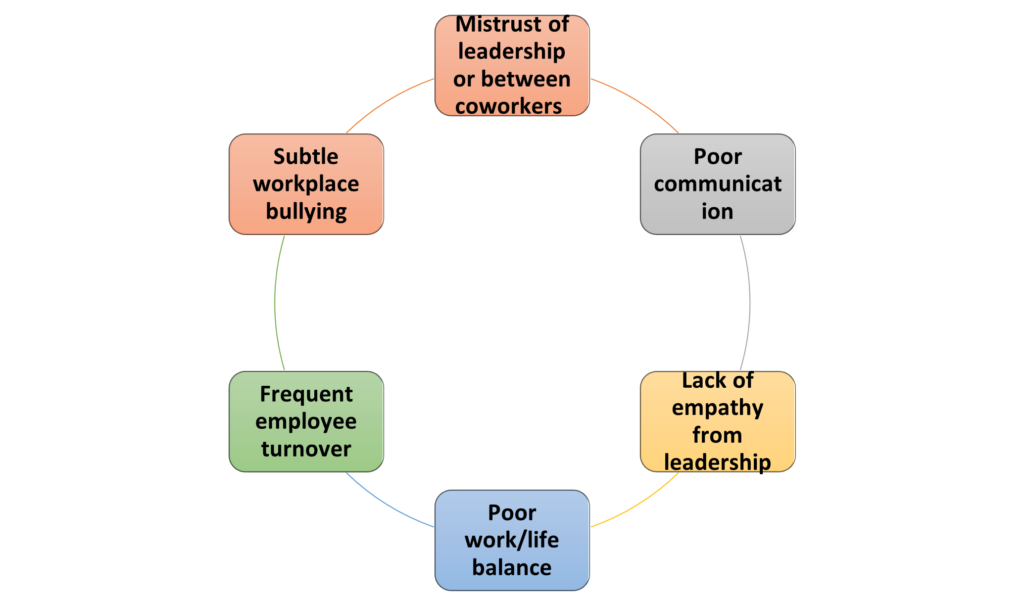(General Studies IV – Probity in Governance Section – Concept of Public Service; Philosophical Basis of Governance and Probity; Information Sharing and Transparency in Government, Right to Information, Codes of Ethics, Codes of Conduct, Citizen’s Charters, Work Culture, Quality of Service Delivery, Utilization of Public Funds, Challenges of Corruption.)
The recent death of a young woman working in Pune has highlighted concerns around toxic work culture in India. Her family attributed her tragic death to the exhaustion and intense pressure she faced at her job. A former employee of the same company also spoke about the unrealistic demands and lack of work-life balance.

| Issues in Toxic Work Culture |
The concept of toxic work culture has gained attention worldwide, but in India, it remains a challenging issue. Here are some of the prominent issues that contribute to such environments:
- Excessive Work Hours: Many employees in multinational firms and high-demand sectors often work long hours, sometimes extending well beyond the typical workday, leading to burnout and mental health issues.
- High Pressure and Unrealistic Deadlines: Studies show that this relentless pressure leads to high stress levels and job dissatisfaction, contributing to a toxic environment.
- Poor Work-Life Balance: Deloitte’s Workplace Burnout Survey revealed that employees in toxic environments feel overwhelmed, with no clear separation between work and personal life.
- Lack of Support and Communication: Employees often feel unsupported in such environments, where communication is limited to task assignments without adequate feedback, mentorship, or career development support.
- Profit-Driven Policies: As theorized by Karl Marx, the drive for profits often leads to extended workdays. This translates to a relentless push for increased output within shorter deadlines, leading to significant stress.
- Impact of Global Work Culture Norms: Multinational corporations tend to carry forward Western work culture norms. In the U.S., long working hours are common in high-performing sectors, and these practices have been adopted by firms operating in India, sometimes without adaptations to local norms.
| Laws and Regulations Relating to Work Culture in India |
- Factories Act, 1948: Limits working hours in factories to 48 hours per week and mandates adequate rest breaks. However, this law is not directly applicable to corporate offices.
- Occupational Safety, Health and Working Conditions Code, 2020: Aims to consolidate labor laws, including provisions for safe working environments and specific protections for worker well-being. Implementation, however, has been slow, and further clarity on enforcement is needed.
- Shops and Establishments Act: Enforced at the state level, this law regulates work hours, rest breaks, and overtime payment in shops and commercial establishments. But, like the Factories Act, this is often inadequately enforced, especially in large corporations and consultancy firms.
- Code on Wages, 2019: Sets provisions for minimum wages and payments for overtime but lacks specific guidelines on overtime limits and regular working hours for sectors beyond manufacturing.
- National Health Policy, 2017: Recommends mental health initiatives in workplaces, but these are more of advisory guidelines and not strictly enforced across corporate offices.
| Addressing Toxic Work Culture |
| Clear and Enforced Work Hour Regulations: India needs to develop comprehensive work-hour regulations that include mandatory limits on work hours for all sectors, not just manufacturing. For instance, in France, the ‘Right to Disconnect’ law mandates companies to set hours during which employees cannot be contacted for work purposes. |
| Mandatory Mental Health Support: Organizations should be mandated to provide mental health support for employees. The U.K. requires companies to conduct regular mental health risk assessments, which could serve as a model for India. |
| Regular Audits of Work Practices: Implement mandatory audits of employee working conditions and ensure transparency in work-hour tracking, similar to Germany’s strict regulations on employee monitoring and work hours. |
| Awareness and Training: Employers should receive training on work-life balance policies and employee support mechanisms. Companies should also create awareness among employees about their rights and the importance of mental health. |
| Third-Party Monitoring: Establish third-party organizations to monitor corporate work cultures and report on compliance with labor standards, similar to the monitoring done by OSHA (Occupational Safety and Health Administration) in the U.S. for workplace safety and health. |
| Flexible Working Hours and Remote Work Options: Flexibility in working arrangements can reduce stress and promote a healthier work-life balance. The Netherlands, which mandates flexible work policies, has found positive outcomes in terms of employee satisfaction and productivity |
| Addressing toxic work cultures requires concerted efforts by companies, policymakers, and employees alike. Regulating work hours, providing mental health support, and ensuring compliance through regular audits can help curb toxic practices. By adopting global best practices while considering local contexts, India can create healthier, more productive workplaces that respect employee well-being and rights. |

